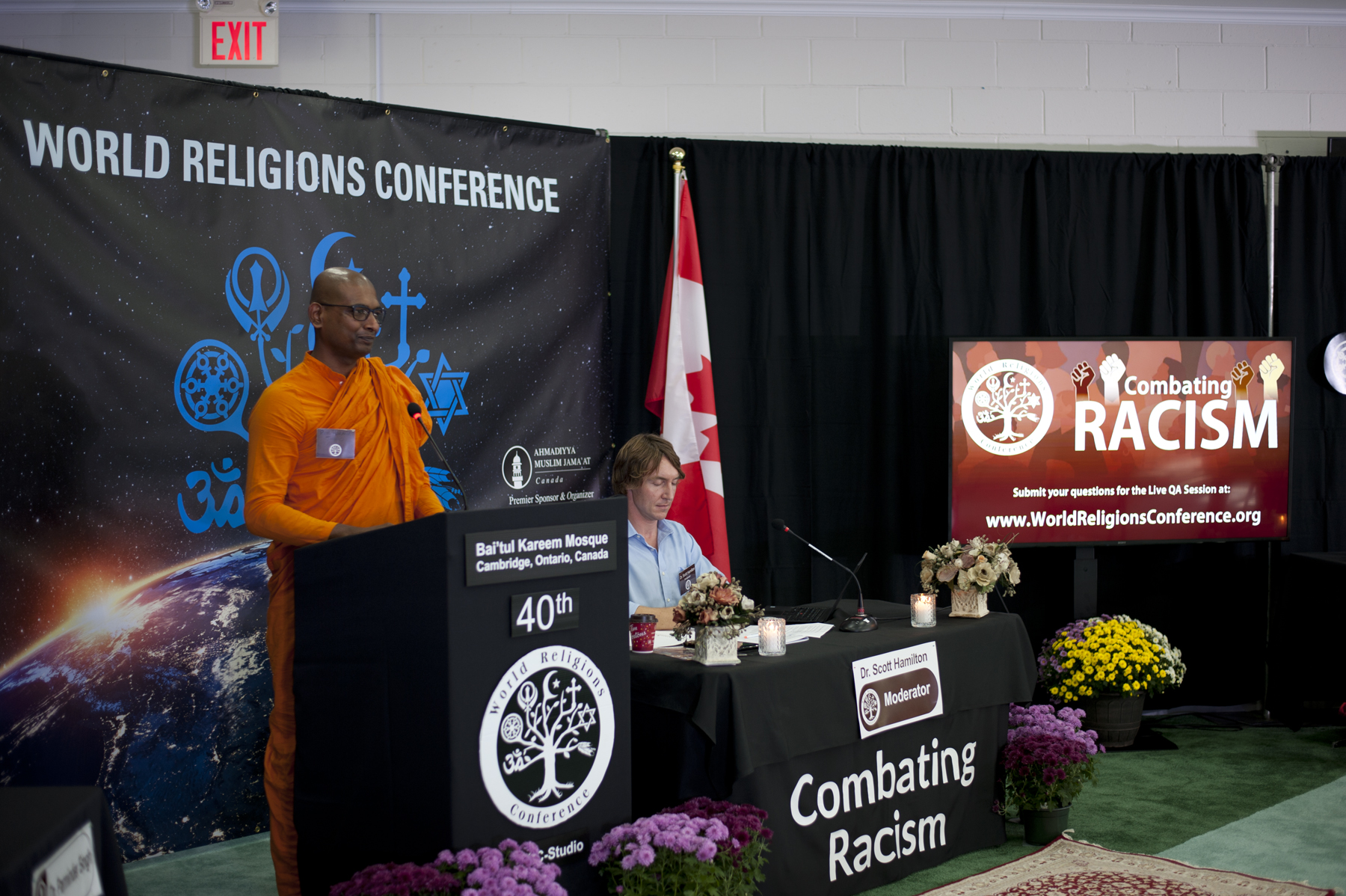Combating Racism
Buddhist Perspective
by Rev Horana Anuruddha Thero
Waterloo Wellington Buddhist Monastery and Meditation Center

Abstract of Theme Speech
Buddhism by nature always resort to non-violence, Buddha himself has set precedence to the disciples, in numerous occasions. When people of different castes and creeds were against Buddha and his teachings. Buddhism being a philosophy, rather than a religion focused on the issues related to one’s existence. It taught a way, how to find fulfillment and eternal peace, not by any divine intervention but by one’s action and thinking alone.
Two thousand five hundred years ago, the Indian society was divided by the caste system. Where affluent aristocrats and rich clergy dominated the resources, whereas the majority were marginalized and deprived of wealth in that feudalistic society. Division based on caste was equivalent to modern day racism within that subcontinent.
Out of the two main contemporary spiritual leaders emerged Jaina Mahaveera and Buddha, both launched a radical view on how the society looked at division. Which was often not favored by the privileged, but adored by the oppressed.
Pali canon vouches for multiple encounters, where Buddha was blamed of ordaining people who belonged to a lower caste, and was challenged and looked down upon his view of inclusiveness. Vāseṭṭa sutta, is an occasion where the reply of Buddha fits greatly in combating the modern-day racism. In which a Brahmin argued, you inherit greatness from birth.
In which Buddha said “the taxonomy of living creatures, for species are indeed diverse. Know the grass and trees, though they lack self-awareness. They’re defined by birth, for species are indeed diverse.
While the differences between these species are defined by birth, the differences between humans are not defined by birth. Not by hair nor by head, not by ear nor by eye, not by mouth nor by nose, not by lips nor by eyebrow.
But the actions they take, behavior they display, the words one utter, and the thoughts one think will define him as a Brahmin or a lower caste.”
If we look closely a child is born with a clean slate, no culturally acquired divisions. As he ages the various divisions, stereo types and bigotry forms. So if we meditate, and rewind our memories and thinking to our original roots, we will find the purity and unison.
Being a spiritual leader, I always feel that there are eyes on me, by Buddhists as well as non-Buddhists. My action not only reflects my personality but also the entire religion I’m representing. Like the saying with great power comes great responsibility, it is also a wonderful opportunity to display traits of compassion and equality.
Sometimes rather than preaching a simple action, such as visiting an anti-Buddhist community with a peaceful approach, goes a long way in reconciliation and elevating the misunderstandings community pockets have. As by definition they live in community pockets, where they have the own version of what the other pocket would behave like.
Attuppanayaka dharma is a teaching of buddha, where you are supposed to put yourself in others shoe, before you think, utter words and take action. That way you become sensitive and tolerant even in a situation where racism and division exist. Each person lives in their own cocoon of mind, and knowing that, being transcended out of the ordinary who doesn’t understand that, will always make one the bigger person in combating racism.
Apart from this another important factor would be having cultural sensitivity, and a mind to be flexible and adventurous for new cultural norms.
Like always combating racism is not a one-way effort, it always requires two to tango. Buddhism revolves around accepting reality rather than dogging the truth or trying to suppress the truth. It is important that I make peace with who I am. I also see, for the same reason people use politically correct words instead of saying it out loud. So, the verity is suppressed instead of addressed.


